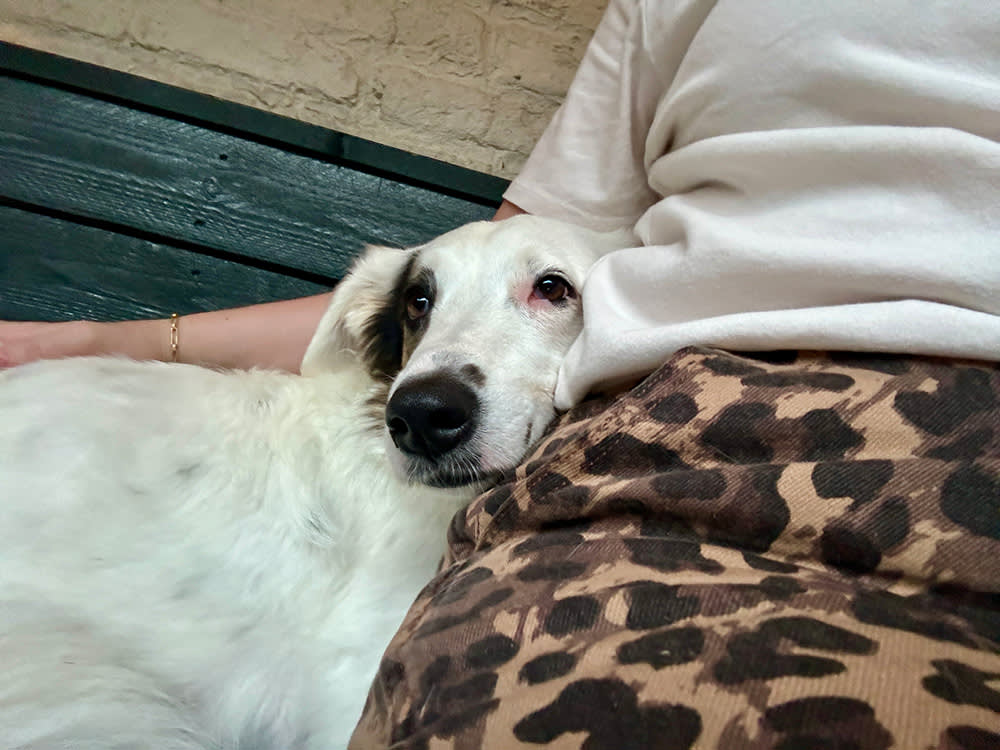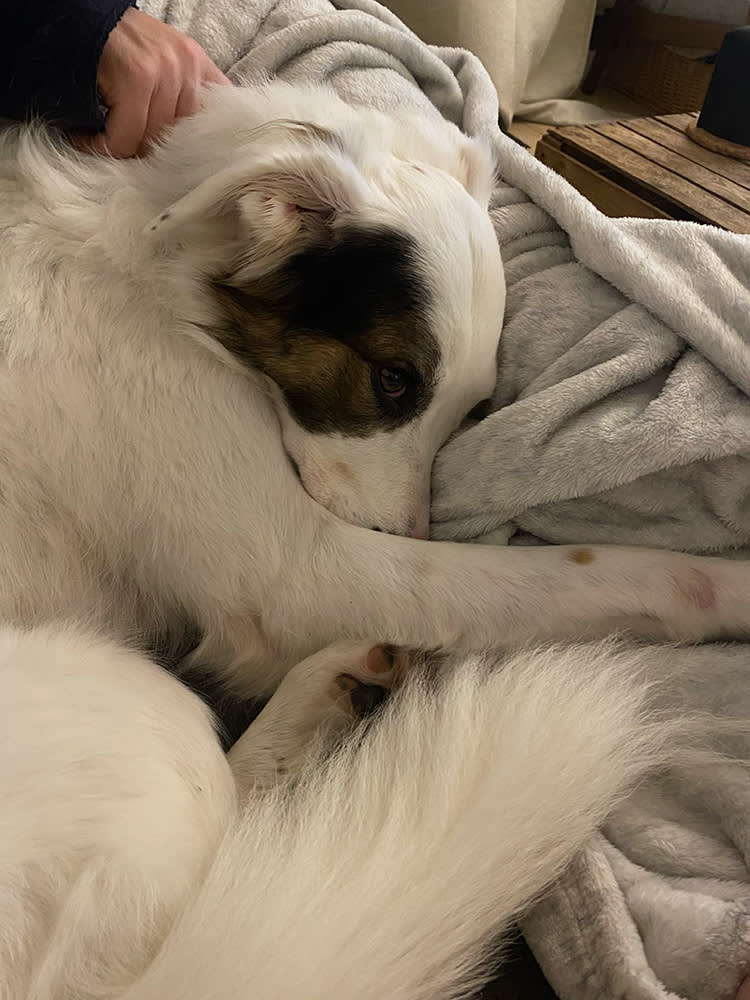No, My Dog Isn’t ‘Friendly’ – But That Doesn’t Mean She’s a Bad Dog
Unpacking the friendly-dog fallacy
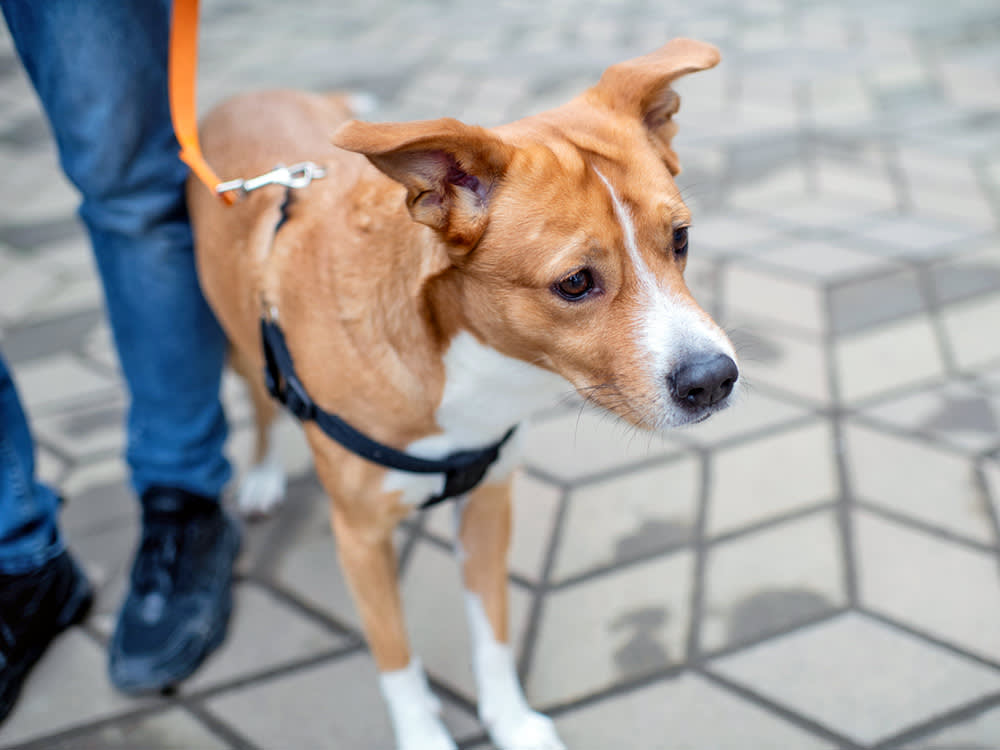
Share Article
There’s a strange phenomenon in the pet world where dogs are categorised into one of two groups: ‘friendly’ (good dog) or ‘not friendly’ (bad dog). A binary view that, quite frankly, is absolute nonsense. Just like humans, dogs exist on a vast spectrum of sociability, and – believe it or not – not all of them want to be best friends with every passing pooch.
Take my dog, Luna. She’s a four-year-old rescue, who is loving, affectionate and the undisputed queen of sofa snuggles with me and my partner. But at the park? She can be wary, overwhelmed, and sometimes downright unimpressed with other dogs’ antics. She can also be reactive in fearful situations. She’s not the sort of gal who bounds over to strangers in the park with a wagging tail and an open invitation for a game of chase. But that, dear reader, does not make her a bad dog.

littleKin™ is Kinship’s home just for puppy and kitten parents. Bop over to check out expert advice, new pet tools, and special deals—all curated for your newest family member.
opens in a new tabHere’s the thing: just because a dog is ‘friendly’ doesn’t mean they get to do whatever they want. I cannot count the number of times I’ve been in the park with Luna, peacefully minding our own business, only to have an excitable off-lead Cockapoo gallop over with no parent in sight. Luna, bless her, is pretty well-trained (#humblebrag), so I’m able to put her in a ‘down’ position while I fend off the other dog and attempt to locate their absent parent.
Then, when the parent finally materialises, what do I hear? “Oh, don’t worry, they’re friendly!” As if that makes their dog’s unsolicited approach acceptable; as if my dog’s right to her own space is secondary to their dog’s desire to socialise. Not all dogs, like humans, want to be social butterflies, and that is perfectly fine.
But that doesn’t make Luna a ‘bad’ dog. It makes her a dog with boundaries. A dog who thrives on predictability, and one who, quite frankly, doesn’t need random dogs (or their parents) inserting themselves into her day uninvited.
Another memorable encounter involved a rather muscly mixed-breed dog who was, indeed, friendly. Unfortunately, he was also utterly lacking in boundaries, launching himself at Luna in a full-body invitation to wrestle. His humans were nowhere to be seen, which meant I was left playing referee.
Now, in an ideal world, all dogs would be perfectly matched playmates, respecting each other’s signals and boundaries. But this isn’t an ideal world, is it? Dogs, like people, have different comfort levels, triggers and histories.
Even though a dog may be friendly, you never know how the other dog will react to the first dog’s behaviour, no matter how well-intentioned. If the other dog they go up to is nervous, reactive or on-the-job, it could be risky to let your dog bound over freely as it could be dangerous for them. One wrong move and a well-intentioned but overzealous friendly dog could push the wrong buttons, leading to a snap – or worse, a full-on altercation.
It all boils down to this: friendliness is not the same as good behaviour, and shyness or caution is not the same as aggression. Dogs, like people, don’t all fit into neat, binary categories of ‘friendly’ or ‘not friendly’. Some are social butterflies, some are selective about their company, and some, like Luna, prefer to keep their circles… not even small, but selective.
The unspoken pressure to have a friendly dog is exhausting. When Luna isn’t keen on socialising, I’m made to feel like I owe an explanation. But why? No one expects every human to be a social butterfly, so why do we demand it from our dogs?
Funnily enough, children manage to wrap their heads around the notion that ‘no means no’ much more easily than adults. On the rare occasion I’ve had to tell a kid politely asking if they could say hello to Luna, “Not at the moment I’m afraid, she’s very nervous” for whatever reason, I have been met with an enthusiastic “That’s OK!!” 100 percent of the time with children (adults however…that’s another story).
I’m all for positive encounters, but I also respect Luna’s right to say ‘no, thank you’. I wish more people would respect that too. Not every dog is a socialite. Some have had difficult pasts, some just prefer their space and some simply, just… don’t like your dog. (There, I said it.) And that’s OK.
What’s frustrating is that it’s rarely the so-called ‘unfriendly’ dogs causing problems. It’s often the friendly ones who are allowed to run riot, unmonitored and unchecked, with no regard for the comfort levels of the dogs they’re enthusiastically launching themselves at. And somehow, when a dog like Luna doesn’t reciprocate the enthusiasm, she’s the one labelled as the problem.
So here’s my plea to fellow dog parents: just because your dog is friendly, don’t assume every other dog wants to engage. Read the room (or the park). If a dog is on a lead, or their parent is actively managing their interactions, take that as a sign that maybe this isn’t a meet-and-greet opportunity. Friendly or not, every dog deserves to have their space respected.

Orla Pentelow
Orla Pentelow is Kinship UK’s Senior Editor. She has previously written for British Vogue, Bustle, Yahoo and The Telegraph. When not at her desk liking dog videos she’s out and about with her rescue pup, Luna, who works primarily as chief distractor.
Related articles
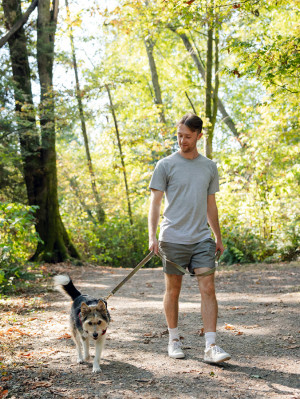 opens in a new tab
opens in a new tabHow to Advocate For Your Dog in Public
How to set boundaries and protect your pup
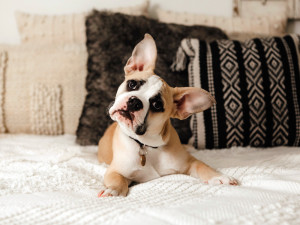 opens in a new tab
opens in a new tab9 Common Dog Myths (That Are Actually False)
Sorry to break it to you, you might not know your pup as well as you think you do
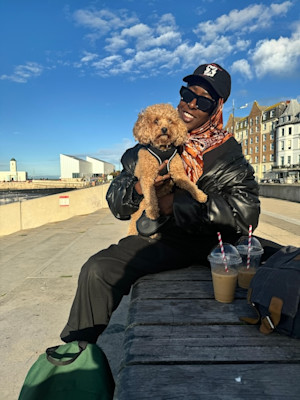 opens in a new tab
opens in a new tabThe Moment I Met My Dog: 5 People Share Their Pup Love Stories
“She’s taught me a love I never knew existed”
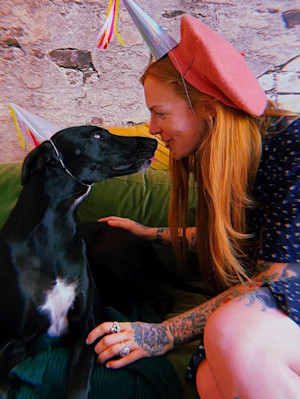 opens in a new tab
opens in a new tab5 People Who Found Lasting Love With So-Called ‘Difficult’ Dogs Who Survived Trauma
“She senses my needs like I sense hers. I don’t know who I am without her.”
